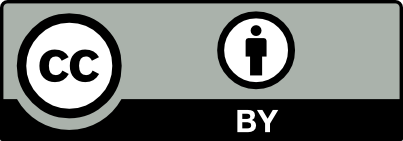International health regulations: public health emergencies, freedom-restricting measures, and individual freedom
DOI:
https://doi.org/10.3395/2317-269x.00266Keywords:
Health Surveillance, International Health Regulations, Freedom-restricting Measures, Quarantine and IsolationAbstract
This study aimed to identify the main features of the freedom-restricting control measures adopted by the signatories to the international health regulations (IHR) in case of epidemics/pandemics. Relationships were emphasized between laws and principles and benefits and disadvantages from adopting them. A literature review search was conducted in Medline, Scielo, and Web of Science databases using the key words “Restrictives Measures,” “Quarantine,” “Nonpharmaceutical,” “Quarantine and Isolation,” “medidas restritivas,” “Quarentena,” “não-farmacêuticas,” and “isolamento” in articles published in or before July 2012. Different countries showed different approaches, and economic, social, and administrative issues rather than quarantine and isolation were found to be the main concern in the discussion of freedom-restricting measures. There is tacit agreement regarding both the importance of restrictive measures in Public Health Emergencies and the realization that their effective enforcement entails problems not yet harmonized among IHR (2005) signatories.Downloads
Downloads
Published
Issue
Section
License
Copyright (c) 2015 Health Surveillance under Debate: Society, Science & Technology (Vigilância Sanitária em Debate: Sociedade, Ciência & Tecnología) – “Visa em Debate”

This work is licensed under a Creative Commons Attribution-NonCommercial-NoDerivatives 4.0 International License.
COPYRIGHT ALLOWANCE The author (s) hereinafter designated as the ASSIGNOR hereby assign and transfer, free of charge, the ownership of the copyrights related to this ARTICLE to the Vigilância Sanitária em Debate: Sociedade, Ciência & Tecnologia (Health Surveillance under Debate: Society, Science & Technology) – Visa em Debate, represented by FUNDAÇÃO OSWALDO CRUZ, established at Av. Brasil, nº 4365, Manguinhos, Rio de Janeiro, RJ, Brazil, CEP 21045-900, under the conditions set out below: (a) The terms and conditions set forth in this Agreement shall apply to the following: 1. The ASSIGNOR declares that they s(he) is (are) the author (s) and owner (s) of the copyrighted property of the ARTICLE submitted. 2. The ASSIGNOR declares that the ARTICLE does not infringe the copyrights and / or other property rights of third parties, that the disclosure of images (if any) has been authorized and that they s(he) assume(s) full moral and / or property liability for its content, before third parties. 3. THE ASSIGNOR assigns and transfers all copyrights relating to the ARTICLE to the ASSIGNEE, especially the rights of editing, publication, translation into another language and reproduction by any process or technique. The ASSIGNEE becomes the exclusive owner of the rights related to the ARTICLE, and any reproduction, totally or partially, is prohibited in any other means of publicity, printed or electronic, without prior written authorization from the ASSIGNEE. 4. The assignment is free and, therefore, there will be no remuneration for the use of the ARTICLE by the ASSIGNEE.







